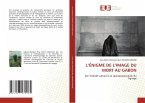This book aims to understand why contemporary funerary practices in Gabon feature an astonishing profusion of photographs and videographs of the deceased, at the time of the wake and his funeral, while in many cultures the image of the dead is purely and simply prohibited. The interest in the cultural taboo that governs the taboo of the representation of the dead thus gradually and contradictorily shifts to the "new practice", which dates back to the 1980s in Libreville, of putting the dead into photographic images, and more broadly to put on show all the stages going from the funeral wake to the burial.
Bitte wählen Sie Ihr Anliegen aus.
Rechnungen
Retourenschein anfordern
Bestellstatus
Storno








